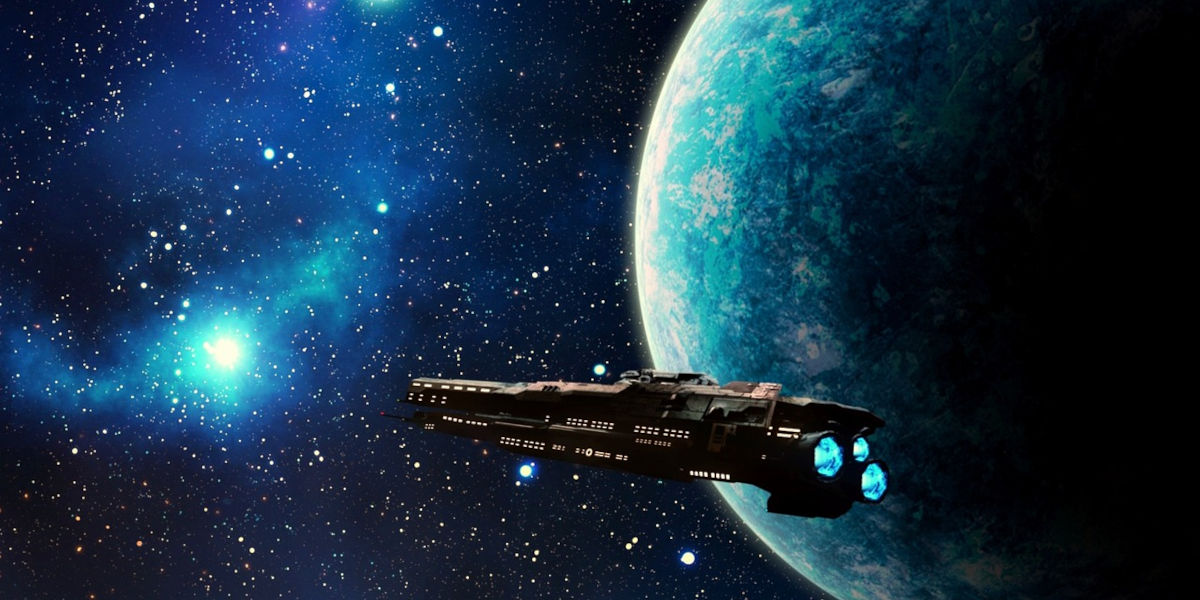An epochal leap that could alleviate earth's mounting challenges or a deeply troubling fantasy with unimaginable efects? That's Exoplanet Colonization for you. For centuries, humans have looked to the stars and dreamed about exploring the vast universe beyond our planet's stratosphere. However, recent technological advancements have transformed this age-old dream into a tangible possibility, inviting new, in-depth discussions about Exoplanet Colonization Possibilities.
As we approach this brave, new frontier, we must confront the question, "Can Humans Live on Another Planet?" and brace ourselves for the numerous obstacles we're likely to encounter on this journey. Just as pioneers of past eras experienced, Challenges in Colonizing Exoplanets are enormous, but perhaps not insurmountable.
Surely, extraterrestrial life has been the stuff of science fiction, from H.G. Wells' Martian-invading "The War of the Worlds," to the more recent glimmering shots of spaceships soaring across the galaxies in "Star Trek" and "Star Wars." But as fantastical as these stories may appear, they now form the template upon which our scientific and technological endeavours strive to attain. As such, we approach this prospect with a blend of excitement and trepidation.
Exoplanet Colonization Possibilities: A New Dawn in Space Exploration
With thousands of exoplanets recently discovered by space telescopes like Kepler and TESS, the dream of being an interstellar species is more visible than ever. These exoplanets are planets outside the solar system that orbit around other stars similar to the way Earth orbits around the sun.
Among these potential new homes are planets dubbed 'Goldilocks Planets'. These exoplanets exist in a habitable zone- not too hot and not too cold, a zone where liquid water can exist on their surface. They raise a compelling prospect that we could one day live on another planet. But dreaming of colonization is one thing; the reality of the endeavor is significantly more complex.
Can Humans Live on Another Planet?: The Biological Aspect.
The primary consideration in exoplanet colonization is whether or not the human body can survive on any other planet. Our bodies are designed to overcome the challenges on Earth's environment. From the atmospheric pressure and oxygen concentration to gravity and radiation exposure, every system in the human body is optimized for life on Earth. But what about other planets?
The environment on other planets, as far as we understand, is vastly different from Earth. The atmospheric conditions are extreme, gravity differs significantly, and there's the risk of constant exposure to harmful cosmic radiation. Even within our solar system, Mars – our first serious consideration for colonization – has temperatures varying from 20 °C to -153 °C depending on time and location, not to mention the absence of breathable air and the atmospheric pressure being far less than that of Earth's.
Extraterrestrial Living: The New Frontier
We stand on the precipice of the next great leap for mankind. The prospect of colonizing exoplanets offers uncharted frontiers brimming with possibilities. Already, the identification and study of exoplanets – planets beyond our solar system – have unfolded a vast, new cosmos to explore. The Kepler space telescope alone has discovered more than 4,000 of these celestial bodies, many of which have environments that could possibly support life. But is colonization feasible? And, if so, what challenges do we face on our journey to becoming a space-faring civilization?
Prospects for Colonization
Sets of promising exoplanets, located within habitable zones or 'Goldilocks zones,' are potential candidates for human colonization. These zones are regions around a star where conditions might be just right – not too hot, not too cold – for life as we know it to exist. The presence of water, a key ingredient for life, adds to the potential viability of these planets.
Technological Challenges
Despite the promising prospects, we face numerous technological challenges in colonizing exoplanets. Issues such as time, resources, fuel source and human survival are critical. Most known exoplanets are light years away. Even travelling at the speed of light, it would take us four years to reach the nearest star system, Alpha Centauri. We currently do not possess the technology to achieve anywhere near such speeds.
Life-Support and Resource Management
Beyond achieving interstellar travel, colonizing new planets will require us to develop advanced life-support systems, able to sustain human life for indefinite lengths of time. Population sustainability, medical needs, food production, and waste management are issues to tackle. In addition, we would have to manage the resources we find on these planets or bring with us. We would need to use these strategically and efficiently, ensuring we do not deplete these as we have done on Earth.
Stepping into the Future
Colonizing exoplanets is a daunting, yet exciting, prospect. We must overcome substantial hurdles to succeed in this new frontier. The onus is on us to learn from our experiences on Earth and use these lessons as we turn our gaze to the cosmos. Through innovation, continued exploration, and collaboration, we may be able to overcome these obstacles and truly become an interstellar species.




